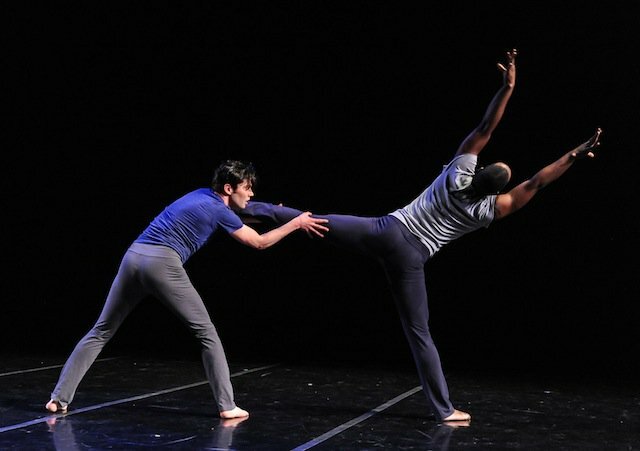
How much contemporary dance can you take in? This weekend it’s the BOOST Dance Festival (Friday to Sunday), Seattle Dance Project’s Jason Ohlberg showcase (Friday and Saturday), and the final performances of Pacific Northwest Ballet’s Modern Masterpieces (Thursday to Sunday).
BOOST takes place at the Erickson Theatre (around the corner from the Egyptian, on Harvard) and features a different combination of choreographers each night. The works have been selected by a panel that includes Marlo Martin, Amy O’Neal, Kate Wallich, Kristen Legg, and Matthew Baker. Choreographers are Anna Conner, Maryann McGovern, Michele Miller, Elia Mrak, Sarah Kathryn Olds, Alana O Rogers, and Maya Soto, along with Legg and Martin. The festival draws widely from Seattle’s thriving contemporary scene, so there’s almost no telling what you’ll get — ballet-inflected, b-boy, or contact improv. If you like to think you have your finger on the pulse of contemporary dance, this is where you need to be.
SDP’s celebration of Jason Ohlberg takes place at ACT Theatre, presenting his Trinity, [dropped due to injury — ed.] Gloria, and a “reimagined” Departure from 5th. The first is “loosely based on Jean Paul Sartre’s No Exit,” the second is set to Vivaldi’s choral work, and the last is a confessional performance of real power. Of its premiere, I wrote:
Ohlberg’s Departure from 5th assembles a few of my favorite things: musings about the wisdom of experience, decrepitude, and music by Rufus Wainwright and Arvo Pärt. I’ve seen dancers narrate as they do their life’s work before, but it’s never stopped being affecting to me to hear about the personal struggle-decision to dance, perhaps because ballet dancers especially confront their own mortality earlier than most, as they find that the physical demands of professonal ballet surpass their abilities often in their thirties. (The Wainwright song? “Do I Disappoint You?”)
Here, interviews with the dancers are played as they perform, and so you hear about body images, perfectionism, technique, while the same dancer mutely gestures and moves about the stage. In the muscular, sculpted Iyun Harrison’s segment, danced with David Alewine, he talks about the tensions in looking like the heterosexist ballet “prince” as a gay man; Alexandra Dickson recalls the time her child’s legs were pronounced “sturdy.” Throughout, they are occasionally guided by gowned “Fates,” who near the end, pull a silvery sheet over the dancers like a high-thread-count scythe.
Finally, at McCaw Hall, there’s Modern Masterpieces at PNB, which “lives up to the hype” of its title, with works by Balanchine, PNB’s Paul Gibson, Ulysses Dove, and Twyla Tharp. It’s the Dove and Tharp works, back to back, that push the dancers to emotional and physical extremes:
Where Balanchine saw an arch in arms, Dove saw a tomb’s vault in a wide, Grahamesque plié, the dancers on and off pointe with a wrenching, snapped-to precision. (Dove said the year before he created the piece, he’d lost 13 people, including his father.) […] Dove’s work may sound like a difficult piece to follow, and it is, but Twyla Tharp’s In the Upper Room does, and earned roars from audience on Friday. It’s in danger of being remembered as the smoke-filled ballet, given the amount of artificial fog pumped into McCaw Hall, but it’s nonetheless clear that Tharp and Philip Glass sparked something in each other.